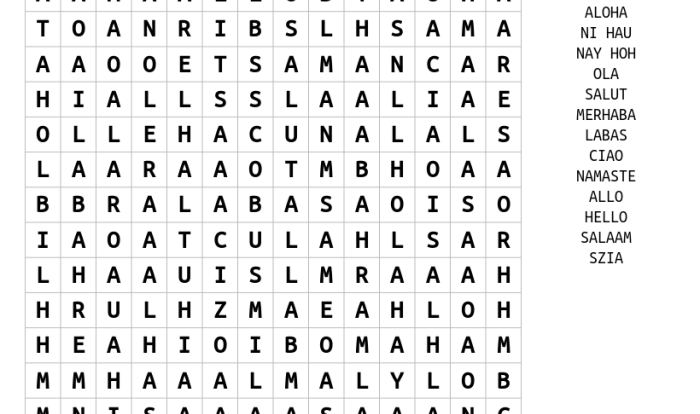Embark on a journey of professional growth with the Tennessee Category 7 Practice Test, an invaluable tool designed to empower educators in their pursuit of excellence. This comprehensive guide will provide a thorough overview of the test’s format, content areas, preparation strategies, and resources, equipping you with the knowledge and confidence to excel in your teaching career.
As you navigate the intricacies of the Tennessee Category 7 Practice Test, you will gain insights into your strengths and weaknesses, build unwavering confidence, and develop exceptional test-taking skills. Embrace this opportunity to elevate your teaching practice and make a profound impact on the lives of your students.
Overview of Tennessee Category 7 Practice Test
The Tennessee Category 7 Practice Test is a comprehensive assessment tool designed to prepare individuals for the actual Category 7 Driver’s License Exam in Tennessee. This practice test is crucial for aspiring Category 7 drivers as it provides valuable insights into the test format, content, and scoring system, enhancing their chances of success on the official exam.
The practice test comprises a set of multiple-choice questions that cover a wide range of topics relevant to Category 7 driving, including traffic laws, defensive driving techniques, and vehicle maintenance. It is typically timed, simulating the actual exam conditions and allowing individuals to gauge their time management skills.
Test Format
- Multiple-choice questions
- Covers topics relevant to Category 7 driving
Duration
- Timed, typically around the same duration as the actual exam
Scoring System
- Typically graded on a pass/fail basis
- Passing score varies depending on the testing agency
Content Areas Covered
The Tennessee Category 7 Practice Test encompasses various domains of teaching expertise. It evaluates candidates’ proficiency in:
- Knowledge of Teaching:Assessing candidates’ understanding of instructional methodologies, learning theories, and student assessment techniques.
- Planning and Assessment:Evaluating candidates’ ability to design, implement, and assess effective lesson plans and instructional strategies.
- Professional Responsibilities:Assessing candidates’ understanding of ethical conduct, collaboration, and professional development within the teaching profession.
Knowledge of Teaching
This domain examines candidates’ grasp of essential teaching concepts, including:
- Learning theories and their implications for instruction
- Effective instructional strategies for diverse learners
- Assessment techniques for evaluating student learning
- Differentiated instruction to meet individual student needs
- Classroom management strategies to foster a positive learning environment
Planning and Assessment
This domain assesses candidates’ ability to:
- Design and implement developmentally appropriate lesson plans
- Select and use appropriate instructional materials and resources
- Differentiate instruction to meet the needs of all learners
- Develop and use effective assessment strategies to monitor student progress
- Use data to inform instructional decisions and improve student outcomes
Professional Responsibilities
This domain evaluates candidates’ understanding of their professional obligations, including:
- Ethical conduct and legal responsibilities of teachers
- Collaboration with colleagues, parents, and the community
- Professional development and lifelong learning
- Advocacy for students and the teaching profession
- Commitment to diversity, equity, and inclusion in the classroom
Preparation Strategies
To succeed in the Tennessee Category 7 practice test, comprehensive preparation is essential. By implementing effective strategies, you can increase your knowledge, sharpen your skills, and boost your confidence on test day.
Reviewing study materials is paramount. This includes thoroughly studying the official Tennessee Department of Commerce & Insurance (TDCI) resources, such as the Tennessee Insurance Laws and Regulations and the Tennessee Producer Licensing Handbook. Additionally, consider utilizing reputable third-party study guides and online courses to supplement your understanding.
Practicing with Sample Questions
Practice is crucial for familiarizing yourself with the test format and question types. Engage in ample practice with sample questions, either through online platforms or printed materials. By simulating the actual testing environment, you can identify areas where you need further improvement and focus your preparation accordingly.
Seeking Professional Development Opportunities
Professional development opportunities, such as attending industry conferences, webinars, or workshops, can significantly enhance your knowledge and skills. These events provide insights from experts, updates on industry trends, and networking opportunities with professionals in the insurance field. By actively seeking these opportunities, you can stay abreast of the latest developments and gain valuable perspectives.
Tips for Taking the Test
Success on the Tennessee Category 7 practice test requires a combination of preparation and effective test-taking strategies. Here are some tips to help you maximize your performance:
Time Management Techniques
- Familiarize yourself with the test format and time limits in advance.
- Allocate time wisely, giving yourself more time for questions you find challenging.
- Use the remaining time to review your answers and make any necessary corrections.
Question-Answering Strategies
- Read each question carefully and identify the key information.
- Eliminate obviously incorrect answer choices to narrow down your options.
- If you are unsure about an answer, make an educated guess based on the context.
Managing Stress and Anxiety
- Practice relaxation techniques before the test to calm your nerves.
- Focus on your strengths and the areas where you are well-prepared.
- Remember that the test is just one measure of your knowledge and skills.
Resources for Test Preparation
Preparing for the Tennessee Category 7 practice test is crucial to ensure success. Various resources are available to assist candidates in their preparation, each offering unique benefits and catering to different learning styles.
Official Study Guide, Tennessee category 7 practice test
The Tennessee Department of Commerce and Insurance (TDCI) provides an official study guide that serves as a comprehensive resource for test preparation. It Artikels the exam’s content areas, provides practice questions, and includes essential information on insurance regulations and concepts.
Studying the official study guide is highly recommended to gain a thorough understanding of the exam’s scope and expectations.
Online Practice Tests
Numerous online platforms offer practice tests that simulate the actual exam experience. These practice tests provide an opportunity to assess one’s knowledge, identify areas for improvement, and familiarize oneself with the exam format. Candidates can take these practice tests multiple times to track their progress and build confidence.
Study Groups or Workshops
Joining study groups or attending workshops can be beneficial for those seeking a collaborative learning environment. Study groups allow candidates to connect with other individuals preparing for the exam, exchange knowledge, and clarify concepts. Workshops, led by experienced professionals, provide structured guidance and in-depth discussions on specific exam topics.
Benefits of Taking the Practice Test
Taking the Tennessee Category 7 Practice Test offers numerous advantages that can enhance your preparation and performance on the actual exam.
Firstly, the practice test helps you identify your strengths and weaknesses. By simulating the actual test environment, it allows you to assess your knowledge and skills, highlighting areas where you excel and areas that require further study.
Building Confidence and Reducing Test Anxiety
The practice test also contributes to building your confidence and reducing test anxiety. By becoming familiar with the test format, question types, and time constraints, you gain a sense of preparedness that translates into increased confidence on the actual exam day.
This reduced anxiety allows you to focus on applying your knowledge and skills rather than being overwhelmed by nerves.
Improving Overall Test-Taking Skills
Furthermore, taking the practice test helps you improve your overall test-taking skills. It provides an opportunity to practice time management, pacing yourself effectively, and developing strategies for answering different types of questions. By refining these skills, you become more adept at taking tests in general, which can benefit you in other academic or professional settings.
Question & Answer Hub: Tennessee Category 7 Practice Test
What is the purpose of the Tennessee Category 7 Practice Test?
The Tennessee Category 7 Practice Test is designed to help educators prepare for the actual Tennessee Category 7 Assessment, which is required for licensure as a teacher in Tennessee.
What content areas are covered on the Tennessee Category 7 Practice Test?
The Tennessee Category 7 Practice Test covers a wide range of content areas, including knowledge of teaching, planning, assessment, and professional responsibilities.
How can I prepare for the Tennessee Category 7 Practice Test?
There are several ways to prepare for the Tennessee Category 7 Practice Test, including reviewing study materials, practicing with sample questions, and seeking professional development opportunities.
What are some tips for taking the Tennessee Category 7 Practice Test?
Some tips for taking the Tennessee Category 7 Practice Test include managing your time wisely, answering questions strategically, and managing stress and anxiety.
Where can I find resources to help me prepare for the Tennessee Category 7 Practice Test?
There are several resources available to help you prepare for the Tennessee Category 7 Practice Test, including the official study guide, online practice tests, and study groups or workshops.


